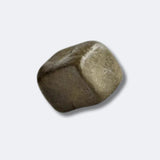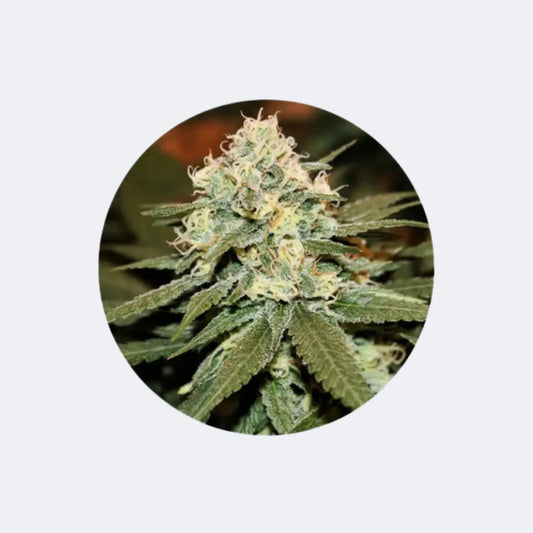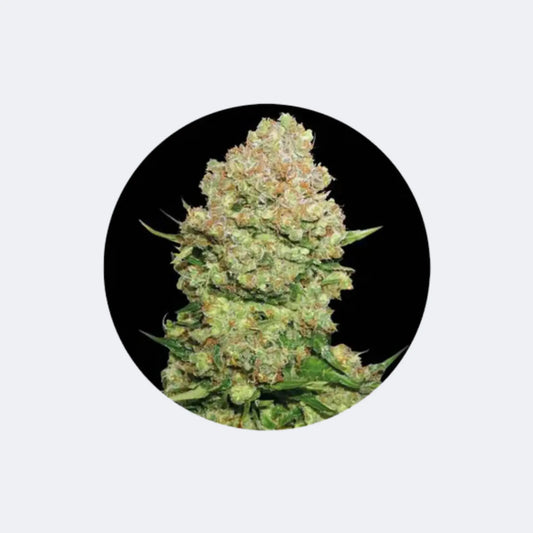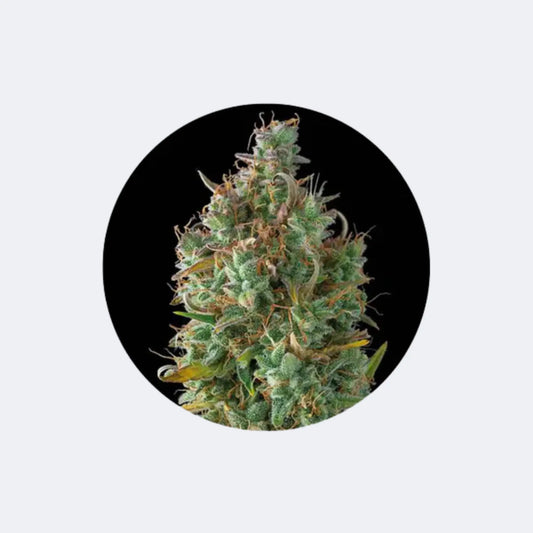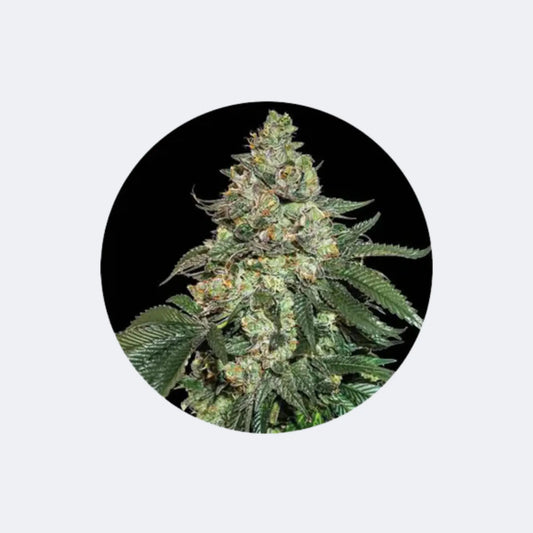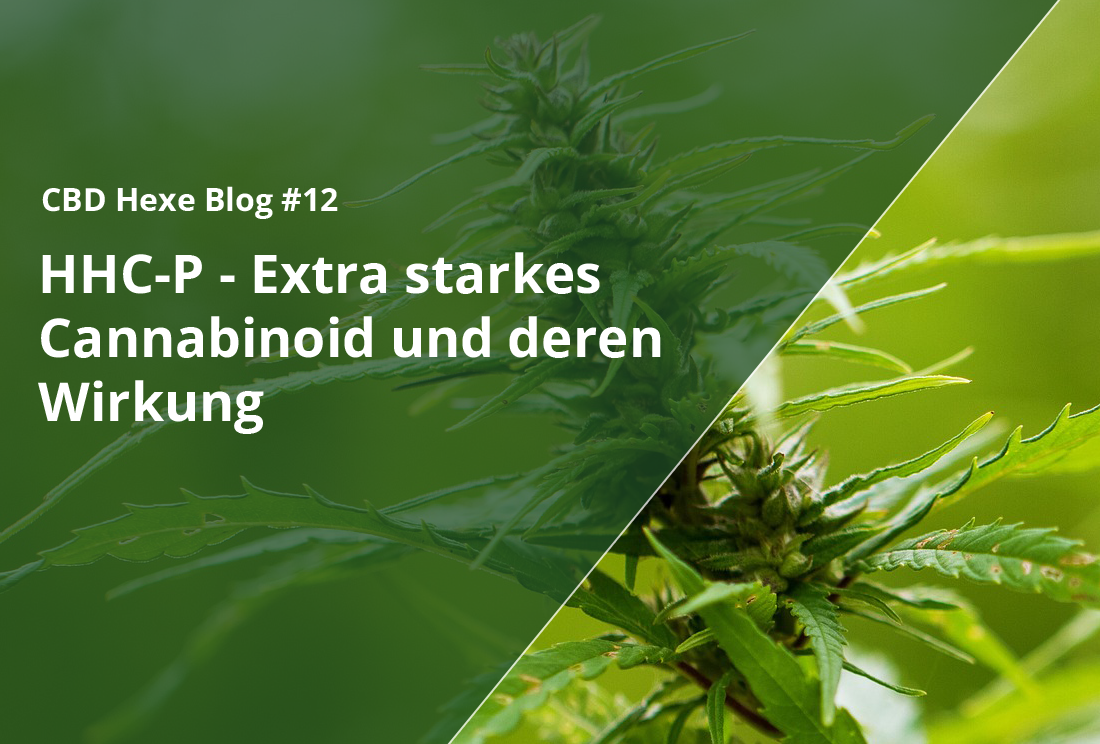
HHC-P - Extra strong cannabinoid and its effects
Maximilian BruderShare blog post
HHC-P - Extra strong cannabinoid and its effects.
All about HHC-P: Differences, strengths and safety of HHC at a glance
Description:
Want to understand the difference between HHC and HHC-P? In this post, we'll clarify which HHC is the most potent, whether it's considered a drug, and what concerns exist regarding its use. Your guide to one of the most exciting cannabinoids on the market.
Introduction
- Brief introduction to cannabinoids
- Relevance of HHC and HHC-P in the current market
- Objective of the article
What is the difference between HHC and HHC-P?
HHC: Origin and properties
- Definition and chemical structure of HHC
- How HHC works
HHC-P: Origin and properties
- Definition and chemical structure of HHC-P
- How HHC-P works
Comparison of HHC and HHC-P
- Similarities and differences
- Areas of application and availability on the market
Which HHC is the strongest?
Criteria for determining strength
- Dosage and potency
- Duration and intensity of effect
Comparative studies and findings
- Studies comparing the potency of both variants
- User experiences and reports
Is HHC a drug?
Definition of "drug"
- General definition and classification
- Legal classification of cannabinoids
HHC in the legal context
- Legal situation in different countries
- Potential risks and penalties
Is HHC a concern?
Medical perspective
- Possible side effects and long-term consequences
- Interactions with other medications or substances
Social perspective
- Public opinion and acceptance
- Concerns about abuse or overdose
Conclusion
- Summary of key findings
- Personal opinion and recommendation for the reader
- Outlook on future developments and studies on HHC and HHC-P.
Introduction
Cannabinoids are fascinating, aren't they? They've gained increasing importance in recent years, especially in medical and therapeutic fields. You may have already heard of THC and CBD, the best-known members of this family. But are you also familiar with HHC and HHC-P? These lesser-known cannabinoids are currently receiving increased attention in research and application.
In this post, we'd like to take you on a journey through the world of HHC and HHC-P. We'll explore the differences, their respective strengths, and their classification in a legal and social context. Our goal is to provide you with a clear and comprehensive overview of these exciting substances. So, let's dive in and learn more together!
What is the difference between HHC and HHC-P?
HHC: Origin and properties
HHC, also known as hydroxyhexahydrocannabinol, is a naturally occurring cannabinoid found in small amounts in the cannabis plant. It is structurally very similar to the well-known THC, but has some differences in its chemical structure. Here are some of the properties of HHC:
- Chemical structure: Unlike THC, HHC has an additional hydroxy group, which gives it a slightly different chemical structure.
- How it works: HHC binds to the CB1 and CB2 receptors in the human body, similar to THC. However, there is evidence that the psychoactive effects of HHC are less intense than those of THC, although further studies are needed to fully confirm this.
HHC-P: Origin and properties
HHC-P is the phosphorus-containing variant of HHC. It is a synthetic cannabinoid produced by modifying HHC. It belongs to the newer generation of cannabinoids developed by adding phosphorus groups to existing cannabinoids. Some facts about HHC-P:
- Chemical structure: HHC-P differs from HHC by a phosphorus group attached to the molecule.
- Mode of action: There are not many studies on HHC-P yet, but it is believed to have a stronger binding affinity to cannabinoid receptors, which could lead to a potentially stronger effect.
Comparison of HHC and HHC-P
- Origin: While HHC occurs naturally in the cannabis plant, HHC-P is a synthetic substance produced in the laboratory.
- Chemical structure: HHC and HHC-P differ mainly in the phosphorus group added to HHC-P.
- Effects: Although both cannabinoids bind to the same receptors in the body, the presence of the phosphorus group in HHC-P may influence its mode of action and potency. It is believed that HHC-P may have a more intense effect, but this needs to be confirmed by further research.
It's important to emphasize that the field of cannabinoids, especially newer and less-researched compounds like HHC and HHC-P, is constantly evolving. New research and studies are regularly conducted to deepen our understanding of these fascinating molecules.
Which HHC is the strongest?
Criteria for determining strength
To determine which HHC is the most potent, we first need to define what we mean by "strength." The strength of a cannabinoid can be measured in several ways:
- Binding affinity: How effectively the cannabinoid binds to the CB1 and CB2 receptors in the body. A higher binding affinity can lead to a stronger effect.
- Dosage: The amount of cannabinoid needed to achieve a specific effect. A cannabinoid that is effective at a lower dosage can be considered more potent.
- Duration of effect: How long the cannabinoid's effects last. A longer-lasting effect can serve as an indicator of a more potent compound.
Comparative studies and findings
Although research in this area is still in its infancy, there are some studies and findings that provide clues to the relative strength of HHC and HHC-P:
- Binding affinity: Some preliminary studies suggest that HHC-P may have a higher binding affinity to cannabinoid receptors than HHC due to its additional phosphorus group.
- Intensity of effect: User reports and some studies suggest that HHC-P may have a stronger psychoactive effect than HHC. This could be due to both the altered chemical structure and the binding affinity.
- Duration of action: The data here are less clear, but there is evidence that HHC and HHC-P may have similar durations of action, although further research is needed to draw definitive conclusions.
It's important to note that the definition of "strength" is subjective and can vary depending on individual experience and context. Furthermore, further studies and research are needed to obtain a clearer picture of the relative strengths of HHC and HHC-P. It's always advisable to exercise caution and stay up-to-date with the latest research, especially if you're interested in consuming or using such compounds.
Is HHC a drug?
Definition of "drug"
When we hear the word "drug," many immediately think of illegal substances that have a psychoactive effect. However, the definition of a drug is broad. A drug can be described as any substance that produces a physiological effect when introduced into a living organism. This can include medications, alcohol, caffeine, and, of course, many of the cannabinoids found in the cannabis plant.
In this sense, one could argue that HHC is considered a drug because it has a physiological effect on the body, particularly through its interaction with the cannabinoid receptors in the endocannabinoid system.
HHC in the legal context
The classification of HHC as a drug varies from country to country and is often closely linked to the legal status of cannabis. Some key points regarding HHC in a legal context:
- Germany: At the time of the last update, HHC was not explicitly listed as an illegal substance in Germany. However, legal regulations regarding cannabinoids are complex and subject to change.
- USA: In some US states, HHC is treated similarly to other cannabinoids found in the cannabis plant. The exact legal status may vary by state.
- Other countries: Many countries do not have specific legislation regarding HHC, which means it may be in a legal grey area.
It's important to emphasize that the legal status of HHC and other cannabinoids is constantly evolving. If you're considering consuming or working with HHC, it's essential to check the current laws and regulations in your country or region.
Is HHC a concern?
Medical perspective
The medical community still has many questions regarding the safety and effectiveness of HHC, primarily due to the lack of extensive clinical trials. Here are some things that are known from previous research and reporting:
- Side effects: Like many other cannabinoids, HHC can cause side effects, including dry mouth, fatigue, or changes in appetite.
- Drug Interactions: There are always concerns about interactions between cannabinoids and other medications. Therefore, it's important to exercise caution and consult a doctor when using them concurrently.
- Long-term effects: The long-term effects of HHC are not yet well documented. However, this doesn't necessarily mean they are harmful—it just means more research is needed.
Social perspective
From a societal perspective, there are mixed opinions about HHC and other cannabinoids:
- Community acceptance: While some recognize the potential medical benefits of cannabinoids like HHC, others view them critically, often due to misconceptions or negative stereotypes.
- Abuse and addiction: Like other substances, HHC has the potential for abuse. However, it is important to emphasize that the addictive potential of cannabinoids is generally considered lower than that of substances such as alcohol or opioids.
Concerns about HHC and other cannabinoids are diverse and often heavily influenced by individual and cultural opinions. However, it is always advisable to make informed decisions based on facts and research, rather than solely on opinions or anecdotes.
Conclusion
Summary of key findings
Throughout this article, we've delved deep into the world of HHC and HHC-P. Key points highlighted include:
- The main difference between HHC and HHC-P lies in their chemical structure and origin.
- There is no clear answer as to which HHC is the "strongest" because the effect is influenced by many factors.
- The classification of HHC as a “drug” depends on the definition and legal context.
- There are both medical and societal concerns regarding HHC, with opinions divided.
Personal opinion and recommendation for the reader
Cannabinoids like HHC and HHC-P are fascinating substances with promising potential, both medicinally and recreationally. Nevertheless, it's important to always be fully informed and make an informed decision about their consumption. Personally, I would recommend always adhering to current legal regulations and consulting a doctor if you have any health concerns.
Outlook on future developments and studies on HHC and HHC-P
Interest in cannabinoids is constantly growing, and with it scientific research:
- New studies: Many new studies are expected to be published in the coming years that will shed light on the effects, side effects, and therapeutic potential of HHC and HHC-P.
- Legal developments: Given the rapidly changing legal situation in many countries, it is important to stay up to date to know how HHC and HHC-P are treated legally.
The future of HHC and HHC-P looks promising, and it remains exciting to watch how this world of cannabinoids continues to evolve.

